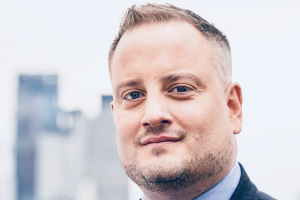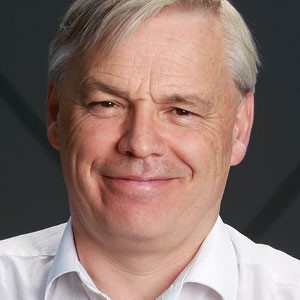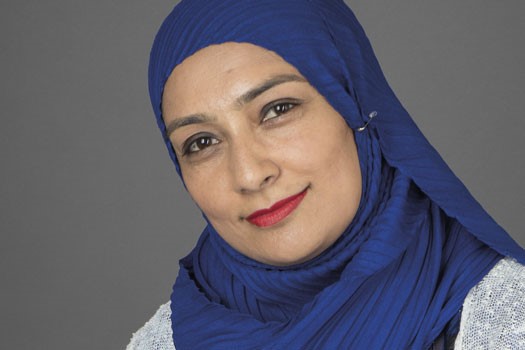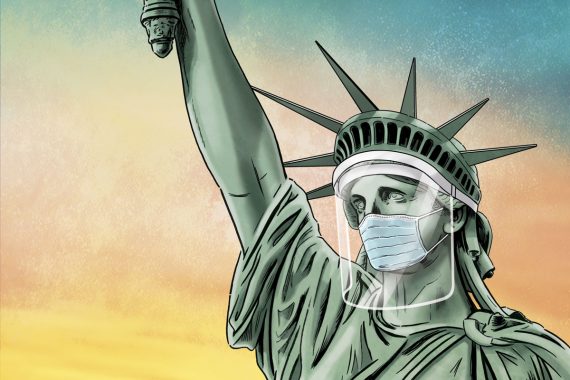‘We went from the old system in practices to something phenomenally new. We’re not going to turn the switch and go back,’ says Essex LMCs chief executive Dr Brian Balmer.
GPs across the country share his view. Covid-19 has fundamentally altered the way general practice is run and many are now invested in this new way of doing things – figuratively and literally.
And crucially, the changes have been largely down to GPs deciding what works best for them and their patients. If a positive has emerged from this pandemic, it is that the independent contractor model remains a trusted and reliable system for general practice.
Of course, ministers and NHS policymakers have issued various short-term diktats in response to the crisis. But on the whole, GPs have exercised their liberty, not waiting to be told what to do, especially when many central policies – on shielding and face masks, for example – have been so muddled as to be unworkable.
We have managed to gain back some autonomy that we won’t wish to lose easily
Dr Katie Bramall-Stainer
As Cambridgeshire LMC chief executive Dr Katie Bramall-Stainer puts it: ‘We are in paradigm shift. We are all taking evolutionary leaps in how we provide services to our patients. We have managed to gain back some autonomy that we won’t wish to lose easily.’
Although pubs, restaurants and cafés reopened on 4 July, a second wave of the virus is a strong posssibility. So this autonomy will continue to be crucial over the next year. But GPs are hoping the shift will be a permanent wake-up call to health leaders, showing that the best results come from trusting the profession with resources and funding, rather than imposing boxes to tick and hoops to jump through.
The pandemic has cost practices money. But in many cases, it has been spent efficiently and has revolutionised general practice. Within weeks, the whole nature of consultations has changed, with unprecedented use of technology.
This has especially been the case for remote consultations. In part this has been driven by necessity and the ready availability of technology. But the flexibility of the independent contractor model has also allowed GPs to make quick decisions on changes that have revolutionised the profession.
NHS Digital data show that before the pandemic, 80% of weekly consultations in England took place in person, but that has almost halved to 47%. Telephone consultations are now most popular, accounting for 48% of all consultations. A recent BMA survey found nine in 10 GPs wish to carry on delivering more consultations remotely after the pandemic
The move to triage has also demonstrated the flexibility afforded by the partnership model. In March, GPs were instructed to send possible cases of Covid-19 to NHS 111 for assessment – and practices implemented this immediately. And even when NHS England rowed back on this in June, instructing practices to ‘avoid redirecting patients to NHS 111 if they present to general practice’, practices were responsive to the change.
I’ve never agreed with the idea of a “hot site”. We know 50-70% of people have no symptoms
Dr Sam Everington
NHS England also suggested that areas implement ‘hot hubs’ – centres to deal exclusively with suspected Covid-19 patients requiring face-to-face assessment. Where these could not be set up, practices were asked to separate suspected Covid and non-Covid patients into ‘hot’ and ‘cold’ zones within their own premises to reduce contamination.
But east London GP and chair of Tower Hamlets CCG Dr Sam Everington says his practice – like many others – took matters into its own hands. He says: ‘I’ve never agreed with the idea of a “hot site”. We know 50-70% of people have no symptoms – so what are you basing your judgements on? What you’ve got to do is ensure every procedure is safe. So you maintain the two-metre distance. Then, for instance, if you are taking blood, you think about how to do it, ask the patient to wear a mask and wear PPE.’
Dr Everington notes that NHS England guidance on what GPs should be reviewing in relation to Covid-19 is often behind the curve: ‘When we look at the standard operating procedures from NHS England, we think “we’ve already done that”. They’re following what we do.’
It is a similar case with PPE. Guidance has been consistently confusing and misleading – especially when it comes to face masks. For example, an NHS England briefing note sent in June suggested face masks would become mandatory at all times in practices for staff and patients – matching the requirement in hospitals. But conflicting messages were being sent out – partly due to a difference in opinion between Public Health England and NHS England.
The beauty of general practice… is we can change our entire operating process within a minute
Dr Mike Smith
Again, practices have been taking matters into their own hands. Almost three-quarters of GPs (73%) are taking a ‘no PPE, no see’ approach, according to last month’s Pulse survey of 681 GPs.
And while GPs were waiting months for the NHS to implement PPE hotlines, or send them protective equipment that often turned out to be inadequate, they were sourcing or making their own, and deciding on the levels of protection needed.
PPE

St Albans GP Dr Mike Smith says his practice has found its own supply routes, rather than relying on national stocks overseen by NHS England. And they have been going beyond Public Health England’s recommendations.
He says: ‘We are using World Health Organization-level PPE. I’m cynical about the PHE level as it appears to change according to what the supply is like. We’ve never successfully managed to access all of the NHS England stock that was promised.
‘We’ve managed to get our own equipment directly from a supplier in China, from donations and local 3D printers making face shields for us – and we shared extra items with other GP practices.’
However, approaches to CCGs about funding for this higher-level PPE have been unsuccessful.
‘It’s a conversation that has been shut down immediately. We’ve broached it and been told anything beyond PHE’s recommendations is on our own tariff.’
Fortunately, the PPE situation seems finally to be improving for practices. Around 72% of respondents to Pulse’s June survey said they had an ‘adequate’ supply of face masks provided by health authorities – up from 33% in April – while 58% said the same about eye protectors, compared with only 13% in April.
GPs are also driving their own changes when it comes to appointment length. Independent contractors have had the flexibility to allow face-to-face GP appointment slots to be longer and more spaced out to minimise the chance of patients passing by each other and to allow for rooms to be cleaned between each consultation.
St Albans GP Dr Mike Smith’s Maltings Surgery has been developing its own detailed plans throughout the pandemic. He says: ‘The beauty of general practice – as opposed to a hospital trust that might take four weeks to make a decision – is we can change our entire operating process within a minute.
As soon as lockdown started my staff had already taken shopping round for patients
Dr Farzana Hussain
‘We are trying to avoid our patients being in the waiting room at the same time, which happens traditionally when people are running late – so we are spacing appointments so as to leave time between face-to-face slots; for example, a phone call, video call then face-to-face.
‘We are also being mindful of spacing our clinicians out to the corners of the building. We’ve become less precious about being in our own rooms.’
He says new infection-control procedures mean the practice is also decluttering GP rooms, placing coat hooks outside the rooms where patients can leave outer clothing, installing hand sanitiser dispensers and alerting staff to clean surfaces throughout the day.
Managing shielded patients

Sir Sam Everington 300×300
GPs have been deciding on what’s appropriate when caring for shielded patients. Some practices are mainly using home visits. Others are seeing them in practice if they require a face-to-face examination but adapting their approach by, for example, asking patients to wear masks or use different entrance doors.
‘This is so much based on the building and practice that you’ve got,’ says east London GP Dr Sam Everington. ‘In our case, we do bring shielded patients in and ask them to wear a mask – but that’s because even with 15,000 patients it’s incredibly rare to have more than two people sat in the waiting room now as we are doing a lot online first.
‘We literally bring them straight in, into the consultation room, do for example the blood test and then they’re out again. We think that’s potentially safer than a home visit.
‘Our patients register online, do a pre-consultation, then can have a phone or video consultation.
‘If we need to, we bring people in at specific times to reduce the number of people in the waiting room and we are open 8am to 8pm, which helps. We quiz people beforehand if there is any evidence of infection, so we triage at that point.’
Another area where GPs have been ahead of the curve – in the absence of cohesive guidance from health authorities – is the management of shielded patients. At the start of the pandemic, GPs were already identifying and contacting their vulnerable patients.
East London GP Dr Farzana Hussain says: ‘Some of the shielding elements we had already covered. As soon as lockdown started my staff had already taken shopping round for some of my COPD elderly patients.’ She adds: ‘Part of the ability of GPs’ to innovate has been down to us knowing our patients.’
The changes practices have been able to make – many likely to be retained in the long term – demonstrate the agile nature of the independent contractor model.
Wessex LMCs chief executive Dr Nigel Watson, who led a 2018 review into the future of the GP partnership model, says: ‘GPs are a in a much better position to make operational changes than clinicians in hospitals because they run their practices, and internally they have less governance and restrictions.
‘NHS policymakers need to see that they’ve got to give local organisations the flexibility to get on and do things.’
Get GPs to do what they’re good at and give them more resource and support
Dr Sam Everington
The input and support GPs need from the Government and NHS England is not top-down diktats but funding, and resources such as PPE and IT upgrades. Dr Everington says: ‘Get GPs to do what they’re good at and give them more resource and support. Phlebotomists, daily pick-up of pathologies, decent IT hardware – give us what it is the modern-day equivalent of the stethoscope – the equipment we need.’
But here the Government is failing. The Covid-19 reimbursement fund has been stalled by Treasury demands for CCGs to prove practices have incurred costs before cash is released. A Pulse survey of 278 partners found practices have incurred average costs of almost £8,000 because of the pandemic – yet have only been reimbursed for around £2,700. Almost a third (30%) said they’d so far received no reimbursement at all.
NHS England itself has recognised that GPs have led the response to the crisis. It has launched a survey asking GPs to share innovations they have brought in during the pandemic. The survey says: ‘As we move into the next phase of our response to Covid-19, we want to ensure the beneficial changes are captured and, where possible and appropriate, sustained as the NHS continues to evolve in the coming months and years.’
Revolutionising consultations

farzana hussain 525x350px
Dr Farzana Hussain, a GP partner in east London, says her practice is reducing face-to-face contact for childhood immunisations by phoning patients ahead to cut the time spent in person. The vaccinations then take place in the car park of the practice. It’s an approach that will remain in place for the coming months.
Dr Hussain says: ‘We have a drive-through clinic now – or patients can bring their buggies to the car park if they don’t drive. Normally the nurse would have a 10-minute face-to-face consultation explaining the jabs to the parents but we have reduced this to two minutes by taking most of the information over the phone first.
‘Patients ring us when they arrive, then the nurse explains the jabs over the phone. Then she comes outside with the equipment to give the jab and goes inside to write up the notes.’
But there are fears in parts of the UK that despite GPs showing they can readily adapt, managers may use this period to tighten contractual requirements.
In Northern Ireland, GPs are worried that new plans to rebuild health strategies will be the death of the GMS contract. One told Pulse: ‘We have been very concerned by coerced working in Covid centres, and are alarmed by the prospect of the centres continuing for the foreseeable future, merging into acute assessment centres, and that GMS contracts could be permanently changed.’
In England, there is a challenge to practices’ autonomy – primary care networks. NHS England shows no signs of rolling back from the project.
Devon GP and former PCN clinical director Dr David Jenner, speaking in a personal capacity, says: ‘A possible barrier to GPs working flexibly would be the micromanagement implicit in PCNs and the service specifications under the DES.
‘For example, with the specification for care homes, rigid performance management would be a problem.’
Despite this, in England GPs remain hopeful for the future of the independent contractor model. As Dr Hussain says: ‘While the model often gets bashed – and compared with the secondary care model of employment – the changes have come because of the hard work of GP partners.
‘We’ve said “these are my patients, this is my business” and we’ve protected our staff and have worked very hard to make these changes.’
Pulse voluntary donation scheme
Since the outbreak of this pandemic, Pulse has strived to support you, whether it be through our resources page, our ‘Clinical Crises’ series, holding policymakers to account with exclusives such as practices being supplied with faulty masks, or GPs being told to stop routine services in the hardest hit areas.
However, good journalism cannot be done on the cheap and, like the whole publishing industry, we have been affected by the economic slowdown. We also strongly believe the content we produce should remain free as we feel it is essential for you. Because of this, we have set up a voluntary donation scheme. There is no compulsion whatsoever to donate. But if you feel we are helping you, and you would like to support us, anything you can spare would be greatly appreciated. Read more here.
Pulse July survey
Take our July 2025 survey to potentially win £1.000 worth of tokens












